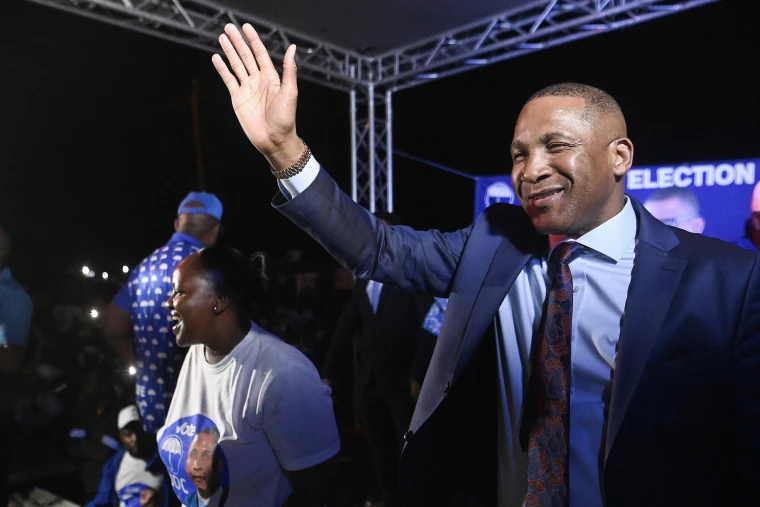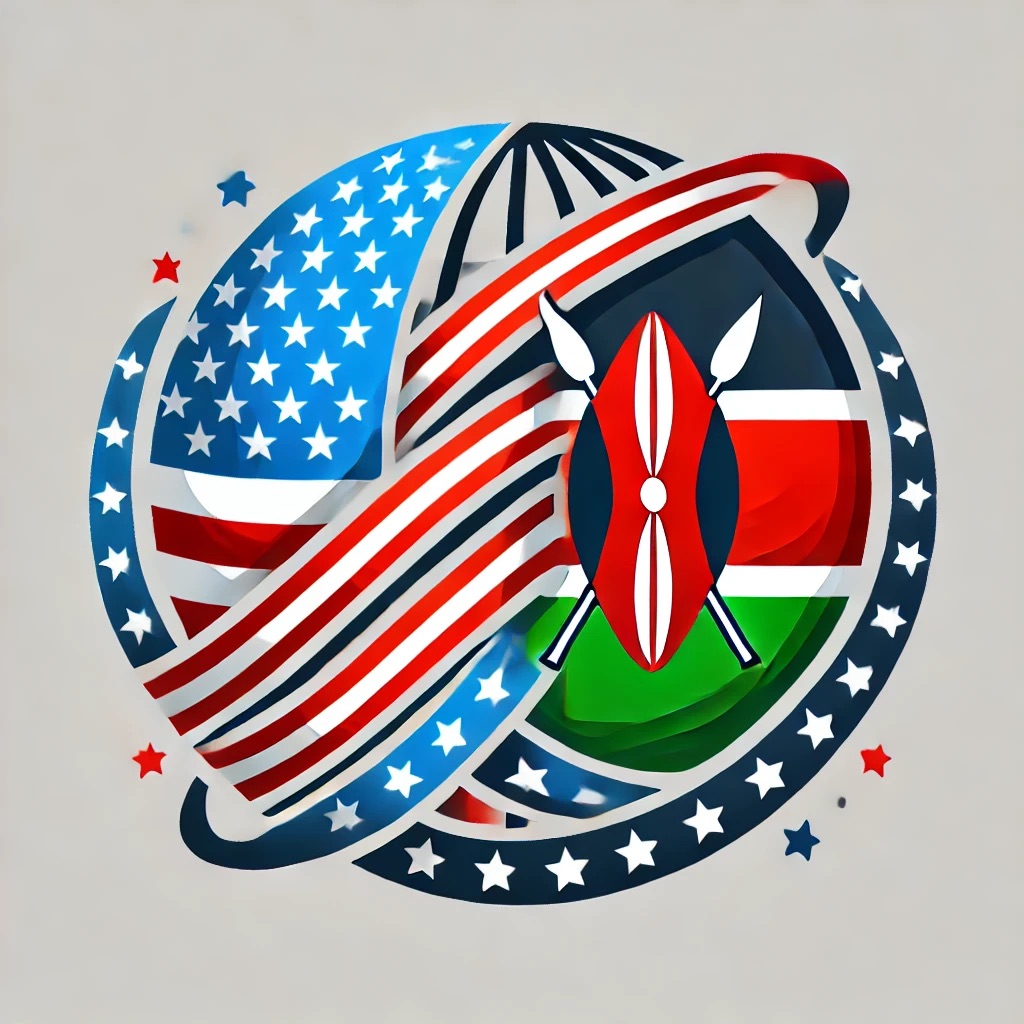
In a significant shift that will shape Botswana’s political future, the Botswana Democratic Party (BDP) has lost its long-standing hold on power, marking the first change in leadership since the nation’s independence in 1966. Duma Boko, leader of the opposition Umbrella for Democratic Change (UDC), won the election, ending nearly 60 years of BDP rule and setting the stage for Botswana to experience its first peaceful power transfer to the opposition. This landmark event, driven by public dissatisfaction with economic stagnation, unemployment, and calls for change, not only redefines Botswana’s political landscape but also aligns the country with a growing trend of democratic evolution across Africa. From Kenya’s peaceful power transfer after Daniel Arap Moi’s 24-year rule to recent democratic transitions in Senegal and Ghana, Botswana’s historic moment resonates with the continent’s democratic journey.
This historic milestone invites us to delve into Botswana’s political evolution from its pre-independence roots to the present, examining the significance of this election, the historical forces that shaped it, and its parallels with other maturing democracies across Africa.
Botswana’s Political Landscape: From Pre-Independence to Present Day
Botswana’s modern political story began in 1966 when it gained independence from British colonial rule. Before independence, Botswana was known as the British Protectorate of Bechuanaland, a landlocked territory with little economic development and limited political autonomy. Under colonial rule, the country’s resources and decision-making were controlled mainly by British authorities, leaving the local population with minimal political engagement.
At independence, Botswana was one of the poorest countries in the world, with a largely agrarian economy and an overreliance on subsistence farming. However, the discovery of diamonds in the late 1960s transformed Botswana’s fortunes. Under the leadership of Seretse Khama, the country’s first president and a founding member of the BDP, Botswana adopted an economic development model emphasizing stability, transparency, and prudent financial management. Khama’s government ensured that revenue from the diamond industry was reinvested into infrastructure, education, and healthcare, laying the groundwork for Botswana’s rise as one of Africa’s most stable and economically successful nations.
The BDP maintained its dominance in Botswana’s political landscape for nearly six decades. The party’s governance model, rooted in its founding values of stability, rule of law, and economic growth, earned Botswana the reputation of being one of Africa’s most enduring democracies. However, this stability came with challenges. Over the years, concerns grew over the concentration of political power within the BDP, limited political competition, and a lack of responsive governance. Despite the BDP’s early successes, issues like economic inequality, youth unemployment, and an overreliance on the diamond industry became sources of public frustration.
The 2024 Election: A Call for Change
By the time of the 2024 election, public sentiment in Botswana had shifted dramatically. President Mokgweetsi Masisi, who assumed office in 2018, faced criticism over economic challenges, including a slowdown in the diamond industry that had been the backbone of Botswana’s economy for decades. The downturn in diamond revenue led to high unemployment rates, particularly among young people, fueling a growing discontent with the status quo. Masisi’s tenure also saw tensions within the BDP, as divisions emerged over policy directions and leadership approaches, weakening the party’s unity and public appeal.
The UDC, led by Duma Boko, capitalized on this wave of discontent by presenting itself as the party of reform and change. Boko’s campaign promised economic diversification, social reform, and a commitment to addressing the pressing issues the BDP had struggled to resolve. For many citizens, this election became an opportunity to challenge the BDP’s long-standing dominance and seek a new direction for Botswana. In an unprecedented outcome, the UDC won a majority in parliament, marking the first time in Botswana’s history that an opposition party had secured power through a democratic election.
President Masisi’s concession and the BDP’s acceptance of defeat marked a historic moment for Botswana. This peaceful transfer of power reflects the maturity of Botswana’s democratic institutions and the resilience of its political system. It underscores the willingness of the country’s leadership to uphold democratic principles, even in the face of political defeat, and sets a powerful example for other African nations striving for political stability and democratic governance.
Parallels with Kenya: The Legacy of Daniel Arap Moi
Botswana’s peaceful transition of power in 2024 echoes another major political transition in Africa: the 2002 retirement of Kenya’s long-serving president, Daniel Arap Moi. Like Botswana’s BDP, Moi’s party, the Kenya African National Union (KANU), had held power since Kenya’s independence. Moi, who had ruled Kenya for 24 years, was often criticized for overseeing a regime marked by corruption, economic mismanagement, and political repression. Under pressure from domestic and international forces, Moi agreed to step down in 2002, allowing for a competitive election that ultimately brought Mwai Kibaki and the opposition National Rainbow Coalition to power.
The peaceful nature of Kenya’s transition in 2002 was a defining moment in the country’s political history. It signaled a shift toward greater political openness, accountability, and democratic governance. For Kenyans, the end of Moi’s rule represented the promise of a new era characterized by political competition and reforms to address the socio-economic issues that had plagued the country for decades. While Kenya’s democratic journey has faced challenges, including political violence and contested elections, the 2002 transition set an important precedent for peaceful power transfers.
Botswana’s transition shares similarities with Kenya’s experience in that both reflect a moment of public rejection of long-standing political dominance in favor of a more inclusive and accountable government. Both countries’ leaders acknowledged electoral outcomes and facilitated peaceful transitions, reinforcing the credibility of democratic institutions. These instances highlight the continent’s capacity for democratic growth and provide a model for other nations grappling with political stagnation and calls for reform.
Democratic Maturity in Senegal and Ghana
Beyond Botswana and Kenya, other African nations have also demonstrated a commitment to democratic principles through peaceful transitions of power. Senegal and Ghana, in particular, have become noteworthy examples of democratic maturity and resilience on the continent.
In Senegal, democratic governance has been a cornerstone of the country’s political identity. Since gaining independence from France in 1960, Senegal has established a reputation for political stability and respect for the rule of law. In 2000, the country experienced a historic transfer of power when longtime President Abdou Diouf conceded defeat to Abdoulaye Wade, marking the first peaceful transition to an opposition candidate. This precedent continued in 2012 when Wade lost to Macky Sall in another peaceful election. Senegal’s experience illustrates that peaceful democratic transitions are possible in Africa despite political and economic challenges. Today, Senegal is considered one of West Africa’s most stable democracies, and its political processes inspire neighboring countries.
Ghana has also emerged as a model of democratic progress in Africa. After political instability and military rule, Ghana transitioned to a multiparty democracy in 1992. The country’s political landscape has since evolved, with power changing hands between major political parties multiple times. Notably, the peaceful transitions between John Kufuor and John Atta Mills in 2009 and between John Mahama and Nana Akufo-Addo in 2017 demonstrate Ghana’s commitment to democratic values and electoral integrity. Ghana’s successes in conducting transparent and credible elections underscore the strength of its democratic institutions and the maturity of its electorate. This stability has reinforced Ghana’s status as a beacon of democracy in West Africa, attracting international recognition and setting a standard for democratic governance in the region.
The Growing Trend of Democratic Maturity in Africa
Botswana’s historic election and peaceful power transfer align with a broader trend of democratic maturity emerging across Africa. While challenges remain, particularly in countries facing authoritarianism, political violence, or institutional weaknesses, many African nations are increasingly embracing democratic principles and demonstrating a commitment to peaceful transitions of power. This trend reflects a growing recognition of political accountability, transparency, and responsiveness to citizens’ needs.
The democratic transitions in Botswana, Kenya, Senegal, and Ghana highlight the continent’s capacity for self-determination and resilience. Each of these nations has, in its way, demonstrated that peaceful transitions of power can be achieved through democratic means, fostering a sense of hope and possibility for other African countries. These transitions serve as a reminder that Africa’s political landscape is not monolithic; it is diverse, dynamic, and capable of transformation.
Botswana’s recent election, in particular, underscores the maturity of its democratic institutions and the commitment of its citizens to a peaceful, democratic process. As Botswana embarks on a new political chapter under the leadership of Duma Boko and the UDC, the country faces the challenge of addressing economic dependency on diamonds, reducing unemployment, and promoting social equity. The peaceful transfer of power provides a strong foundation for the UDC to pursue these reforms, signaling a commitment to accountable governance and responsive leadership.
Conclusion: A Hopeful Path Forward for African Democracy
Botswana’s election is a milestone in Africa’s democratic journey, adding to the continent’s growing narrative of political openness, resilience, and maturity. The historic transfer of power from the BDP to the UDC reshapes Botswana’s political future and sends a powerful message to the rest of the continent: democracy is possible, and peaceful transitions are achievable.
As Botswana joins the ranks of African nations that have embraced democratic governance, its example serves as a beacon for countries still grappling with political stagnation or authoritarianism. The peaceful transitions in Kenya, Senegal, and Ghana demonstrate that African democracies are evolving, guided by transparency, accountability, and respect for the rule of law. These successes underscore the resilience of African societies and the promise of a future where democratic values
